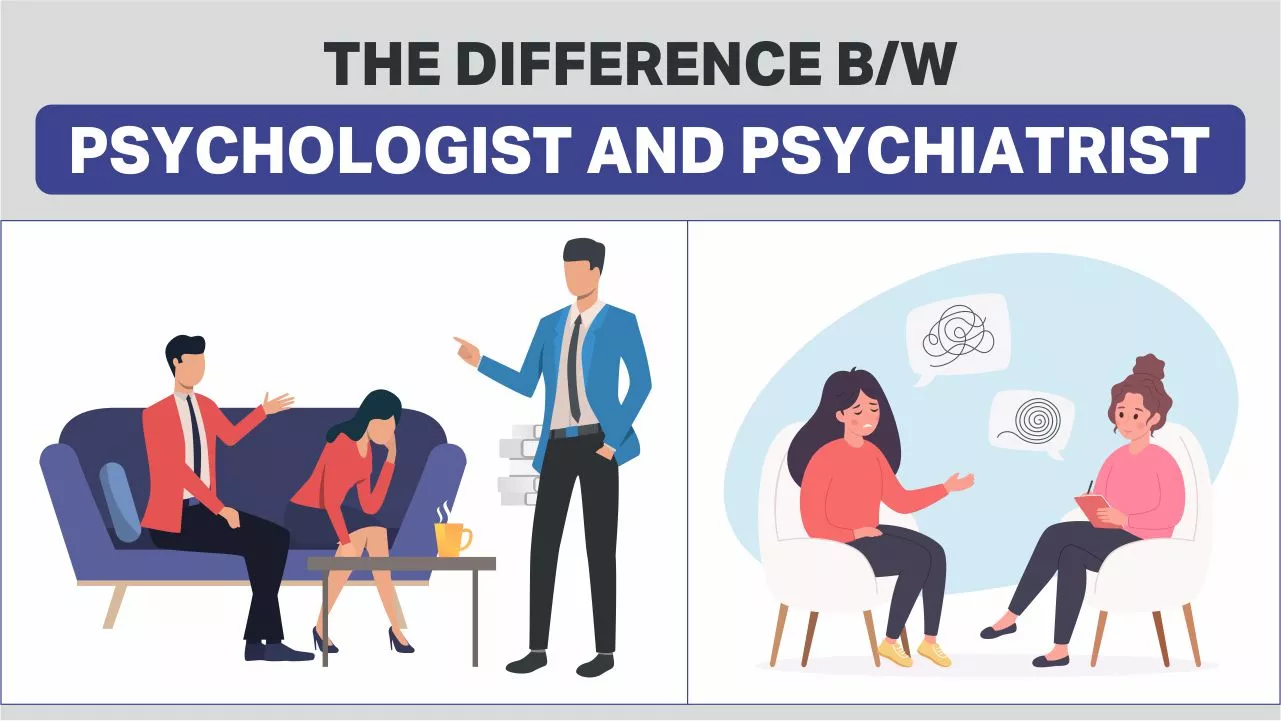Why the Best Psychologist in Delhi Can Change Your Psychological Health
Psych Therapy: A Comprehensive Guide to Methods and Outcomes

Cognitive-Behavioral Treatment
Cognitive-Behavioral Treatment (CBT) is a widely made use of psychotherapeutic approach that concentrates on determining and modifying inefficient thinking and habits patterns. Created in the 1960s by Aaron T. Beck, CBT integrates cognitive and behavior theories to attend to various psychological health and wellness issues, including depression, anxiety, and stress-related disorders. The premise of CBT is that maladaptive thoughts contribute to psychological distress and maladaptive behaviors. By restructuring these ideas, people can achieve significant improvements in their psychological wellness and everyday performance.
CBT is identified by its structured, ambitious nature. Treatment commonly includes a collaborative procedure between the therapist and client, where details problems are determined, and functional methods are developed to resolve them. Techniques such as cognitive restructuring, direct exposure treatment, and skill-building workouts are commonly used. Cognitive restructuring involves challenging and changing adverse idea patterns, while exposure treatment intends to lower fear and anxiousness with gradual direct exposure to been afraid objects or situations.
Evidence-based research study sustains the efficiency of CBT for a wide variety of emotional conditions - Best Psychologist in Delhi. Its focus on ability acquisition and self-help methods encourages clients to proceed progression independently after therapy concludes. The adaptability and efficiency of CBT have made it a cornerstone in modern psychotherapeutic practice
Psychodynamic Techniques
Rooted in the very early concepts of Sigmund Freud, psychodynamic techniques focus on checking out the subconscious mind and its influence on actions and emotions. These methods intend to discover hidden thoughts and feelings that may be driving maladaptive behaviors and mental distress. Central to this approach is the idea of inner problem, frequently originating from unresolved past experiences, specifically those from childhood.
Therapists utilizing psychodynamic strategies utilize a number of crucial techniques, including totally free association, where people are urged to talk freely to disclose unconscious material, and dream analysis, which translates the unrealized material of desires. In addition, the exploration of transfer and countertransference dynamics within the healing connection is important. These interactions can provide insights right into the person's inner globe and relational patterns.
Psychodynamic therapy is commonly longer-term contrasted to various other modalities, providing a deep and thorough understanding of the person's subconscious. Research shows that it can be particularly efficient for intricate psychological wellness issues, such as character disorders and chronic depression. By cultivating self-awareness and emotional understanding, psychodynamic treatment looks for to bring subconscious product to consciousness, allowing individuals to achieve meaningful and lasting modification in their lives.
Humanistic Strategies
Building on the foundations laid by psychodynamic approaches, humanistic methods use a distinctive viewpoint concentrated on specific potential and self-actualization. Coming from the mid-20th century, these methods prioritize the inherent benefits and growth capacity of individuals, stressing an alternative view of human experience. Trick go to this website numbers such as Carl Rogers and Abraham Maslow have significantly influenced this healing technique, which encompasses approaches like client-centered More about the author therapy and Gestalt treatment.
Client-centered treatment, created by Rogers, plays a critical function in humanistic methods. The specialist's function is more of a facilitator than an authority, urging clients to harness their inner resources for recovery.
Gestalt therapy, one more essential humanistic technique, highlights present minute recognition and the combination of body and mind. By concentrating on the "below and now," clients obtain higher insight into their current feelings and behaviors. Techniques such as role-playing and guided visualization are typically utilized to assist clients obtain a much deeper understanding of themselves, eventually bring about improved self-awareness and satisfaction.
Integrative Treatments
Integrative treatments represent a synthesis of different therapeutic methods tailored to satisfy the special demands of each client. This technique recognizes the intricacy of human psychology and the complex nature of mental wellness concerns. By incorporating components from various institutions of psychiatric therapy-- such as cognitive-behavioral therapy (CBT), psychodynamic treatment, and humanistic techniques-- integrative treatments offer a more flexible and holistic treatment standard.
Practitioners of integrative treatment analyze each customer's particular demands, signs, and personal history to design a personalized treatment plan. This customized method improves the capacity for restorative success by resolving the root triggers of mental distress and advertising general wellness. Methods could consist of mindfulness exercises, cognitive restructuring, and emotional processing, each picked to target various aspects of the client's concerns.
In addition, integrative treatments stress the restorative partnership, seeing the client-therapist bond as an important element of effective therapy. This relationship cultivates a helpful atmosphere where customers feel secure to explore and address their concerns. The flexibility of integrative therapies makes them suitable for a wide series of problems, including stress and anxiety, depression, trauma, and social troubles, thus raising their applicability and efficiency in varied medical settings.

Gauging Therapy Outcomes
Assessing the performance of psychotherapy is crucial for both customers and medical professionals to make certain that the therapy is generating the wanted outcomes. To accomplish this, various techniques and devices are employed to measure therapy end results systematically. Standardized analysis instruments, such as the Beck Clinical Depression Stock (BDI) and the Generalized Stress And Anxiety Condition 7 (GAD-7), offer quantitative information on sign extent and adjustments with time.
In addition to standardized tools, qualitative techniques like customer self-reports and scientific interviews offer important understandings right into the personal experiences and perceived progression of clients. Regularly scheduled analyses, usually at the beginning, navel, and end of therapy, assistance in tracking the trajectory of enhancement or determining locations needing adjustment.
Outcome measurement is not limited to symptom reduction; it also encompasses functional improvements in every day life, such as better interpersonal partnerships, enhanced work performance, and improved overall health. Modern improvements in electronic health have introduced mobile apps and on the internet platforms that help with real-time surveillance and comments, further fine-tuning the evaluation procedure.
Eventually, a comprehensive method to gauging therapy end results makes sure that therapeutic treatments work, reliable, and customized to meet the private needs of clients, therefore maximizing the general healing home experience.
Final Thought
Psychotherapy offers a diverse variety of methods intended at resolving certain mental wellness concerns and enhancing total wellness. Cognitive-Behavioral Therapy and psychodynamic strategies target subconscious influences and dysfunctional thoughts, specifically. Humanistic methods concentrate on personal growth and self-actualization, while integrative therapies integrate numerous approaches for customized treatment strategies. Examining therapy outcomes with qualitative approaches and standard evaluations makes sure a detailed understanding of efficiency, eventually guiding customers towards sustaining mental health and wellness renovations.
From the organized strategy of Cognitive-Behavioral Treatment (CBT) to the deep expedition of the unconscious in psychodynamic treatment, each technique brings special advantages. Its focus on skill procurement and self-help techniques encourages customers to proceed development independently after treatment wraps up (Best Psychologist in Delhi). Trick figures such as Carl Rogers and Abraham Maslow have actually substantially influenced this healing approach, which incorporates methods like client-centered treatment and Gestalt treatment
